Lydia Rodriguiez Carlos (nee Dimas)
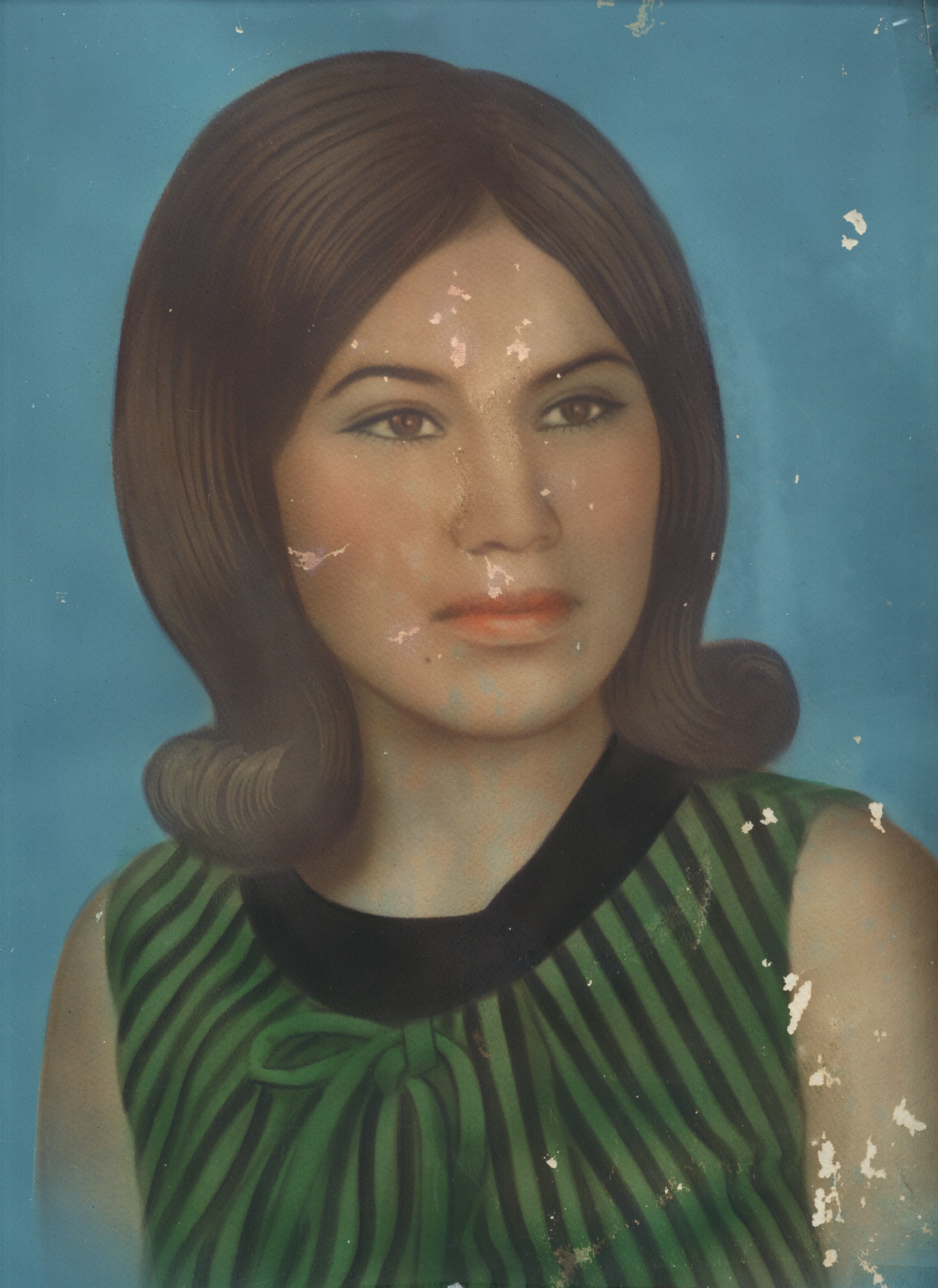

What were your earliest and happiest childhood memories while growing up in Mexico?
Memories? No. No, I don't have any memories of living happily. I don't think so. My entire life was work, work work and work (luaghter).
What schools did you attend while living in Perdas Negras? And if you can tell me the name of your schools.
Well I only up until the third grade and I can't remember the name of the school.
Why is that you only went up until the third grade?
I didn't have supplies such as pencil, papers and books. The school was free I just didn't have the money to buy the supplies that I needed.
If you could have would you had finished school?
Oh yes. Well, at least up to sixth grade.
What were some of the jobs you had while living in Mexico?
Well....when I was ten years old my grandfather left me to live differnet families and if I wanted to eat I had to work. No one was going to take care of me for free. The family whom I lived with would have me clean the house. Also the man had a busienss. He would sell barbacoa and I would go door to door and taking orders. I would offer the merchandise which was barbacoa. Then the customers would tell me if they wanted the food or not. The following the morning, I would deliver it by myself.
You had these jobs so that the famlies would continue to take care of you. Did you have a regular job that paid you a salary?
Well that was when I started working in homes (cleaning). There I was earning money. I was.....fourteen or fifteen.
Around how much money per week were you making?
Oh, around that time (during the seventies) I made cencunta pesos which was like four dollars a week. That's why I decided to get my mica and come over to this side (United States).With the mica I was able to cross the boder for short trips or for work. Over here I was paid eight dollars.
You mentioned when you were ten years old your grandfather left you, where were your parents? Who was taking care of when you were a little girl?
From what I was told by family members was that they divorced and left me with my grandparents when I was three months old. I don't know to much of them really. I just recently learned what their names were. I just know they left me with my grandparents (my mother's parents). The years passed and I spend about five years living with them. Then my grandmother (Ramona Cordova de Dimas) passed away because of a fire accident she was in. She used to make tortillias on skillit over a fire and later sell them. She would somtimes suffer from these attacks.Then one time she had an attack and fell on the fire. She lasted for quite sometime but was always ill and eventualy died because of that accident. After that, I was sent over here to Brackett, Texas to live with my godmother. I lived with her till I was twelve. Then I was sent back to Mexico to the same house. During that time my grandfather (Martin Dimas) was still alive and he took care of me. Then something else occured. He told me, "I'm too old and I can't take care of you." He was about senvety or so around at this time. From there he send me to stay with a family that lived down the street. I wasn't related to them. They were simply neighbors. After that I wound up staying in various homes of family till I was eighteen or so.
Did living in so many differnet homes make feel sad or depressed?
No. I was just a little kid. I wasn't thinking. I knew I was living in diffrent homes but it didn't bother me. I was fine with it. When your a little kid you don't think .....about what peole do. If they send you somewhere, you go. What else could I do. If they left me in the streets I would have been afraid, but I was always left with family. I never felt uncomfortable. I was fine with it.
When was the first time you had heard of the United States?
When I was Fifteen, I remember that I would turn this way and I could see Eagle Pass.I would tell myself, I would love to live over there. I always liked it over there (United States). I would always say that.
What reasons did you have for wanting to live in the United States?
Because I could see the people were living well. I could see the houses in Eagle Pass from where I was at. From Mexico I could see the houses and the lights. Everything looked very pretty. I just liked the way everything looked on this side! I always dreamt of moving over here.
At what age did you marry?
When I turned twenty one I married your father (Jose Luis Carlos). We had met when I was eieghteen.
What made you decide to come to The States?
You and your sister. So your sister and you could be born here. And for a carreer over there (Mexico) one does't stand much of a chance to have one. Over here one can recieve help from the goverment for just about everything. You can accomplish so much more over here. As long as your not a lazy person you can be someone. Things are just easier. Like health care, in Mexico you have to pay first before a doctor will help you. You have to pay right away. For example, your aunt. We had to raise the money right away or else. Here you can pay and payments. Things are just better over here.
So if it wasn't for my sister or me you would have never actualy come to the United States?
No. I would have come here regardlessly. Like I said I always wanted to live here. I have always wanted to have a better life for myself as well.
What were your thoughts prior to coming here? Did you imagine more opportunities?
Yes. Always. Always that. That there was plenty of work, more money and we could have a better life.
Was your passing through the American border without problems?
No. I was once stopped by the border patrol. I had to lie and say that I had lost my purse. I had uncles helping cross the border and they covered for me. They lied for me. It was the only way I could cross over. Nothing bad really happened.
So once you were here did you encounter any problems?
Yes I had a lot of problems. It was mainly because we did't have any papers. Everywhere you went they asked for papers. The other problem was the language. Every where I went people would ask, "Do you speak English?" My only response was always, "a little". When your sister was youger and starting to learn the language I would take her every where. She was my liitle interpretor. Well you know how much trouble I have with Englsih evan till this day. But I somehow manage now.
Why did you choose to live in San Antonio, Texas as suppose to Austin or some other city as your new home?
I liked it here because it was much closer to Mexico. It's much closer then any of the other cities we have lived in. In Florida, all we did was work and never had the time to take a long enough trip to visit family. Imaly city Michigan was even further. Houston would also take too longe to visit family in Mexico. So we just decided to stay here since it's so much closer.
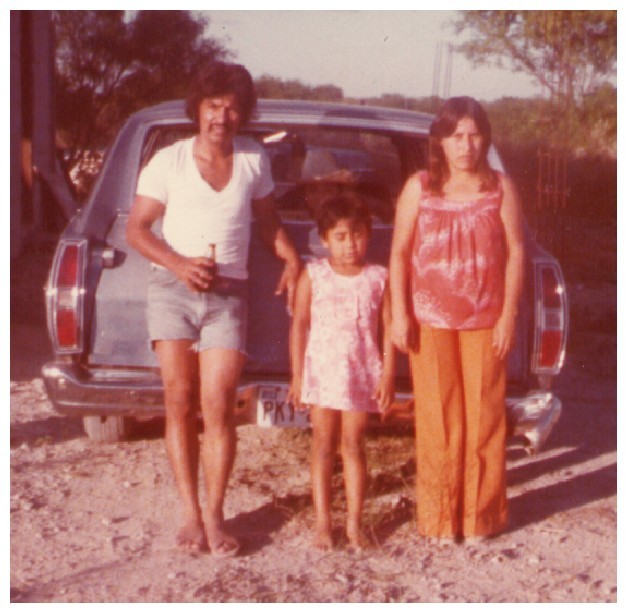
Once you got here what were your plans or dreams?
To have my own home. To have our own car to travel to work. For you guys to have a career. A future. Like now, your sister has her career. And you as well. That was an important for me.
What were some of the items you brought with from Mexico?
Mainly clothing. When we came here it was around it was September we brought a few clothing for winter and some for summer. We also had clothing for work. Mostly it was all work clothing. We never said, "Hey, let's go the United States and take nice clothing so we can go out in!" It was maily clothing to work in.
So once you were living here you had to start from scratch? Did it take a long for you to establish a life here?
Well, yes it took a while since we didn't have our papers fixed when we got here. We never bought nice furniture or a nice home. We would always rent homes that we could afford. We couldn't purchase nice furniture on credit nor buy a house because we didn't have our papers. If the immagration would ever deport us we would loose everything. It wasn't till we got our papers fixed that we started buying things like a car. Little by little we began purchasing more items that we needed. Then we fianly baught this house. We would never loose the house because of our papers. Without them if immagration would pick you, you would loose everything. In 1986 is when gave serious thought about buying our own home
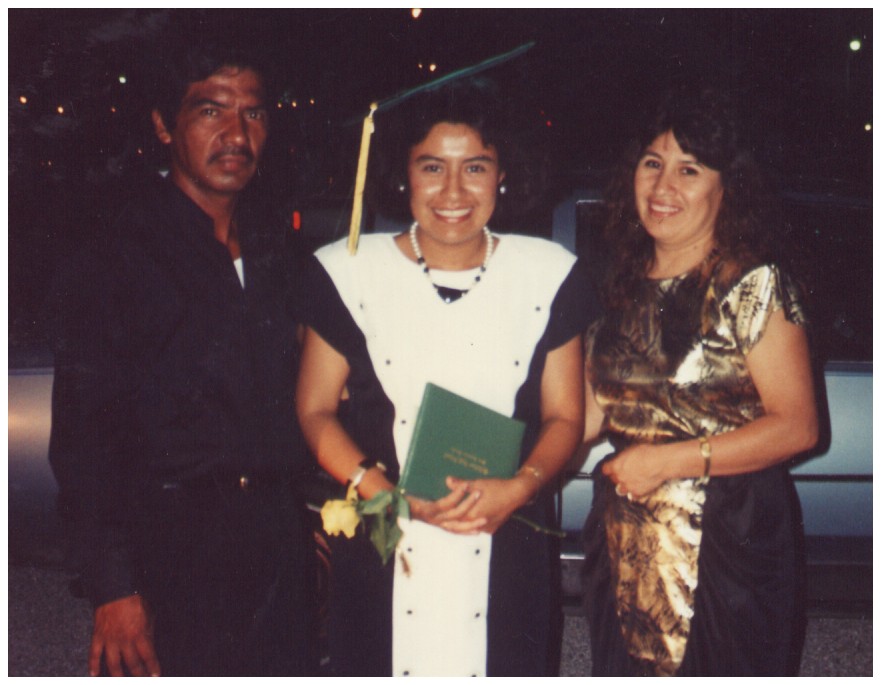
Why did you wait untill 1986 exactly to become a legal citizen?
There was this program around that time in which the president (Ronald Regan) was helping people (immagrants). Thats how we got in. He began a program that would help people that had been living in the States for sometime become legal citizens. As long as you had proof of residence for a certain number of years you could quailify.
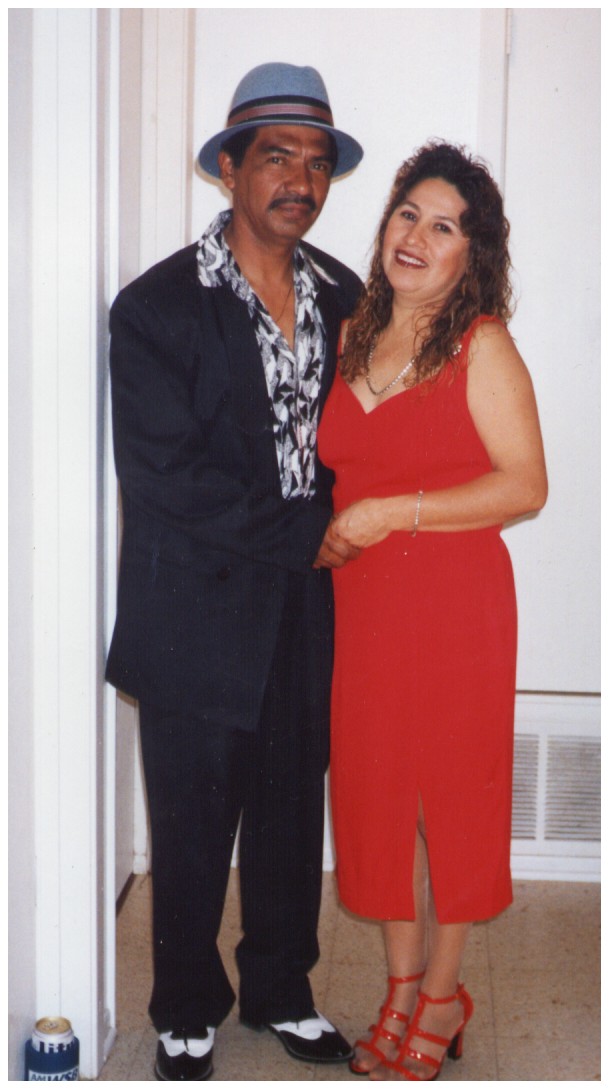
Thank you for you time. Is there anyhting you would like to add to this interview?
Well just that I'm happy that I could help you in your studies. I wnat to encourage you in learning and help you finish school.
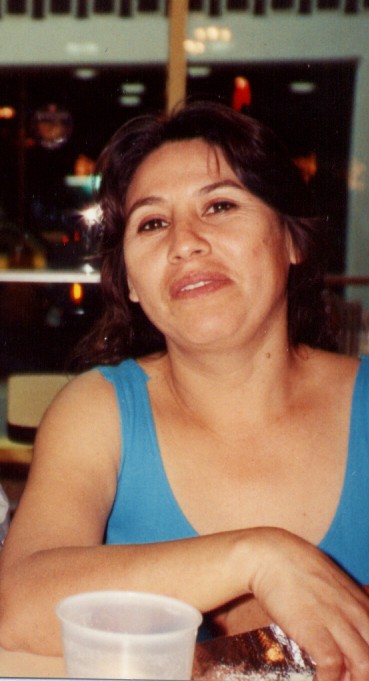
With the oral report I discovered my motherís past from the one person who experienced first hand. Listening to my motherís story of immigrating into the States was very informitive. I did not know she and my father had to overcome so many obstacles just to make a better life for themselves. I remeber both my parnets being strong working indiviuals. I recall my mother fixing up a home they had rented. I also remenber my mother learning how to drive for the very fisrt time. It never ocurred to me how many steps, how difficult it was for my mother to accomplish these tasks. There was so much more to it. I've learn so much becuase of this oral report. The only drawback was opening a can of worms. A few questions led to problems my parents encounter along the way.
Through this interview I can appreciate the opportunities this country has to offer. I realize now that I have far more easier life then my mother did because she immigrated to the United States. I see how important immagtating was to my mother. I know why she chose to move here. Interviewing someone that has lived through any past event is the only way to learn about the past. They are the ones who experienced it first hand. Rather then relying on documents or photos (which are helpful) you can be taught by a person instead.
Mexican Stand Up Services. Pedras Negras,Coahuila Mexico. Cushman and Wakefeild.http://www.mexicostartupservices.com/info.php?ID=22 (2003). This websiter provides a brief discription of Pedras Negras. Information such as population, it's location and infrastrucure of the city.
Chef2Chef. Barbacoa de Cabeza. .Chef2Chef,LLC.http://recipes.chef2chef.net/recipe-archive/5/A05904.shtml/ (2003). Provides the reciepes and ingredients to various meals. Including popular Mexican plates.
The Texas State Historical Association Brackettville, Texas.The Handbook of Texas http://www.tsha.utexas.edu/handbook/online/articles/view/BB/hjb14.html (2002). Gives a breif diescription about Bracketville, Texas history.
San Francisco University Immagration Reform and Control Act of 1986.Human Resources. http://www.sfsu.edu/~hrwww/directives/irca.htm. (2003). You will find information about employment opportunities
Vila, Pablo Crossing Borfers: Reiforcing BordersAustin, Texas: University of Texas Press, 2000. The aurthor talks about Mexican culture and the thoughts of various Mexican indviduals.